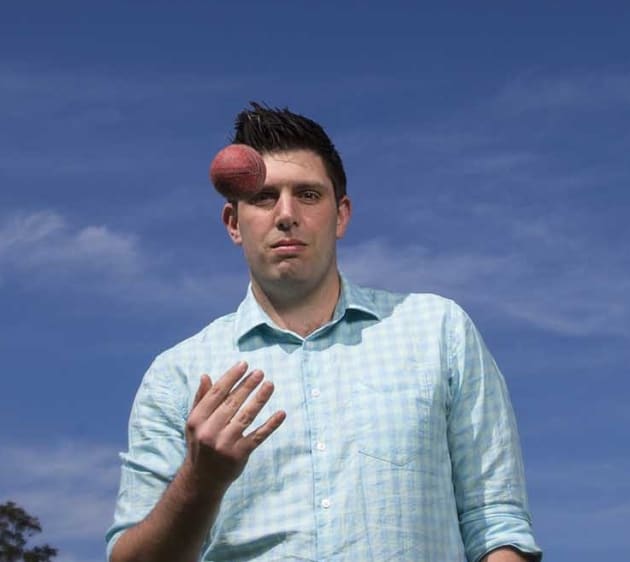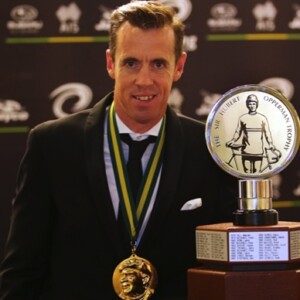Whether we enjoy powering along a roadway with a group of mates, bouncing through some sweet single track in a forest, riding in circles around a criterium track or velodrome or flying high on a BMX, there’s something about riding a bicycle that can really make us feel good. And the good news is, that it’s not just a temporary high as our systems are flooded with adrenalin while we are riding.
Scientific evidence now shows that cycling (and other forms of exercise) can play a major role in more than just cheering us up, but actually helping to heal mental illnesses like depression and anxiety by restoring levels of feel-good hormones which are often found to be low in sufferers.
With the World Health estimating that one in four people will be affected by mental disorders at some point in their lives, this is encouraging for many of our readers who may well be battling mental health issues. WHO says around 450 million people currently suffer from such conditions, placing mental disorders among the leading causes of ill-health and disability worldwide. Beyond Blue figures show three million Australians have anxiety and/or depression and that men in particular are experiencing it at unprecedented rates.
Up to 40 per cent of the population will experience a panic attack at some time in their life and many experience other issues like social phobia, post-traumatic stress disorder (PTSD) and obsessive compulsive disorder (OCD) just to name some.
The issue still seems to be stigma…only 35 per cent of people will seek help and of those, only one in four men will see a doctor. Interestingly, when we put out a call for riders to be interviewed for this story, we were overwhelmed with responses from people who wanted to get the word out, which tells us that mental health issues are indeed rife in our sport – from club level through sportif and social riders right up to elite amateurs and professionals – and that perhaps the stigma is starting to soften.
In a new report entitled New Understanding, New Hope the United Nations’ health agency seeks to break this vicious cycle and urges governments to seek solutions for mental health that are already available and affordable.
“Mental illness is not a personal failure. In fact, if there is failure, it is to be found in the way we have responded to people with mental and brain disorders,” said Dr Gro Harlem Brundtland, Director-General of WHO, on releasing the World Health Report.
“I hope this report will dispel long-held doubts and dogma and mark the beginning of a new public health era in the field of mental health,” she added.
The bottom line is that riding increases the happy chemicals in your brain – serotonin and dopamine.
“What a lot of people with depression actually take in a pill is chemicals which increase serotonin levels in the brain,’’ says Dave Spindler, who works with athletes at NSWIS and for a World Tour team. Currently working on a PhD on understanding the psychological processes of world class endurance cycling, Dave says exercise in general actually increases serotonin levels within two hours.
“There is research out there that in some cases you may be able to reduce or cease your antidepressant medication, but how much exercise to do is an individual thing. Depression and anxiety disorders are so individualistic, that it’s not a one size fits all treatment anyway. It’s a combination of exercise, medication, counselling…and that is dependent totally on what that person is going through at that time. When it comes to cycling in general, if you think about women, who talk about their problems, face to face, but then have a look at how men do it – they don’t. However get them riding side by side and they will start to talk. It’s a male thing, you’re not looking at the person, but after a few hours of talking, you can learn a lot about someone. It has been shown to be a factor in how men communicate. It’s the same as golf, you’re walking down a fairway side by side, just talking.’’
Developmental sports psychologist Stewart Vella, who is a Senior Research Fellow in the Early Start Research Institute at University of Wollongong, a Movember Foundation Men’s Health Partner, and a National Heart Foundation Postdoctoral Research Fellow, says the benefits of cycling in mental health are two-fold; expertise in the relationship between sports participation and mental health.

“What we know is that physical activity, such as cycling, has two ways of helping mental health,’’ he says. “If you think of mental health as having a deficit component (eg anxiety and depressive illnesses), both physical activity and sports participation can reduce those symptoms. There have been some large studies to show that exercise is a really good treatment for depression and can complement medical treatments.
“But then mental health has a positive component. Sports participation is good for self- esteem, social skills and they provide a buffer against mental health problems as well.
“In terms of why, I am not sure we are there quite yet to understanding why a sport like cycling has those benefits. Certainly physical activity is part of it. There are benefits from being physically active…but we know that sports participation is a major key. My best guess working every day in the field, with cycling I can see the culture and there is a social network there available to people. Being involved in a club would have something to do with it, having a greater purpose would be really important. The opportunity to interact and participate with others is important. Social identity is something that could be particularly important in the treatment of depression.
“So by cycling you are both reducing depression and anxiety symptoms and promoting health and wellbeing.’’
The Blayney to Bathurst Sportif each year raises money for Headspace, a national government organisation for youth mental health. And recently, five-time Olympic cyclist Shane Kelly took to the velodrome to launch the annual Ride With Me Event, a two-day cycling event in October that will see cyclists ride from St Kilda To Marysville return, with all proceeds raised going towards Love Me Love You – a youth focused mental health foundation founded by ex AFL player Lance Picioane and involving Kelly, Tour de France rider Jonathan Cantwell and champion cyclists Troy Clarke and Andrew Stalder.
“I did the first one last year as the ride ambassador and when the opportunity arose to do it again, I thought brilliant; this ride is just going to get bigger and bigger. It’s a great opportunity for people to get on their bikes and get out there, there’s a lot of fundraising events around cancer, but as far as mental health goes there’s not a lot out there.
Lance, alongside cyclist Troy Clarke, have both had their own personal battles with mental health after injury put an end to their respective sporting careers. Both sportsmen suffered depression and turned to substance misuse and partying to overcome their inner demons.
Former professional rider turned NSW Institute of Sport head coach, Bradley McGee, is no stranger to the concept of riding a bike for mental health.
Brad, who started cycling in 1986 at the age of 10 and went on to win the 2003 prologue of the Tour de France, wear the leader’s pink jersey of the Giro d’Italia for a day in 2004 and the golden jersey for four days in the 2005 Vuelta a España (becoming the first Australian to wear the leader’s jersey of all three Grand Tours).
“Even at the peak of my training as a pro rider I found the best thing to do when struggling with upstairs issues was – to go for a pedal,’’ he says. “And still do’’.
Competitive masters rider Scott Butler, 49, HR business owner of Wollongong, has found cycling – but sensibly – has helped him a lot with anxiety issues.
“After having some 20 years away from the bike to have a family, I decided to come back to it, as I needed to exercise…do something for me,’’ he says.
“It was an important thing to not only exercise physically but emotionally because I like to be competitive and be tested.
“I think when I was going through some really challenging times at work and a marriage separation that riding was a wonderful outlet. I could be with people or alone and had time to exercise and that obviously creates plenty of positive chemicals.
“I have also seen the negative side of riding too much when you are really stressed and what it does…it creates Depressionobscene levels of cortisol and it can be difficult to perform when over stressed.’’
He concedes that riding has not been the absolutely panacea. “Doing more riding or trying harder is not the be all. You need time to recover. I am high on the anxiety spectrum so my idea of trying to work things out is more…faster…whatever…but I am learning through cycling that I look after myself, be kinder and gentler, that better results will come. So less is more. Has taken me a long time to work that out but this year I have placed in a couple of the races like the Wagga Wagga Open and got second fastest in Wagga to Albury and did well in the state championships for masters but being consistent but not obsessed.’’
Townsville (Queensland) rider Stephen Lane, 35, a wedding photographer who has won medals on the track at state level, took up cycling in 2012 because his podiatrist recommended it to try and fix possible compartment syndrome in his legs as he wanted to run and maybe do triathlons. But it turned out that cycling helped more than his physical body.
“I always suffered with anxiety and depression as a child and I could never pin point anything that actually caused it,’’ he says. I got diagnosed with dyslexia in year 9 and also got IQ tested and showed extremely high results.
“Asperger’s wasn’t discovered back then so it wasn’t possible to diagnose me with it. Going into adult life I found myself constantly unable to live day to day without anxiety and depression was a result of the anxiety I was facing.
“ In 2013 my wife who had been noting down my symptoms decided to research what they could mean and after discussion with me we decided I would go and see a psychiatrist. It wasn’t long before I was diagnosed with Asperger’s and my life has changed since then as I have a new found knowledge into why I was getting the anxiety and depression.
“Cycling has given me something to focus on. It helped me to take my mind off whatever issue was causing me anxiety and move on from it by focusing on self-improvement in a different area. It also allowed me to improve mental toughness. The resolve needed to compete at a high level is huge and it can translate into non cycling life as well.’’
Stephen also believes cycling helped him recover when he suffered two prolapsed discs at once in 2013 while pushing a couch at home.
“I was having to spend days in bed unable to move. It wasn’t until I spoke to a friend who is an old school ironman athlete about the injury that I realized I needed to ride more to keep myself moving and stay happy.
“It helped with the muscles to keep the back loose but also took away anxiety associated with such a painful debilitating injury. I then suffered a torn patella tendon in 2015 which led me to retire from the velodrome this year which caused me some initial depression. After staying off the bike for three months and getting more and more depressed I have been getting out with my team mates from the shop I ride for and we have been road and MTB riding which has all but cured my depression associated with not being able to race track.’’
Victorian recruitment consultant Andrew Falconer, 44, from Wodonga, started para cycling about 12 years ago at a state and national level, to lose weight and “have my time, just me and my bike’’.
“Being born with a physical disability, I am sure that I have experienced some days of struggle and self-doubt but recently going through a divorce also has placed enormous stresses on my life and those around me,’’ he says.
“I find the bike to be a calming agent, whether it be that I would go and smash myself in to sprint session or a hill season, or a longer endurance ride, I find that time on the bike clears my head and distracts me away allowing to sort it out in my head. Quite often my better half, Naarah, knows when something isn’t right and I get told to go for a ride.’’
He says when he tore ligaments in his left ankle while competing for Australia in athletics in Japan, he thought his sporting days were over. Cycling was suggested as a recovery exercise and it was the freedom he got from that and the rush from the speed and acceleration that got him through a lot of life issues.
Although he started riding for fitness and wellbeing, Andrew has won more than 10 Australian National Para cycling Championships on both the track and road disciplines.

That said, he believes any kind of cycling works as long as you are enjoying it.
“Everybody is different and it needs to be a day to day individual assessment. Any amount of time on a bike is a good time.’’
Former national champion, now Cycling NSW head junior coach and could-be masters rider Tom Dawson, 69, agrees.
Tom, who has coached many riders to state and national championships on the track – and recently, Amanda Reid to a Paralympic silver time trial medal – loves to get on his mountain or road bike and pedal his worries and stresses away.
His job is a stressful one – choosing riders for representative teams is a tough job that raises issues with parents and riders. He runs school holiday track programs at Dunc Gray Velodrome, organises coaching structures for regional academies which are a feeder program for the NSW Institute of Sport (NSWIS), organises coaching for junior state teams, prepares athletes, plans camps and coaches a few kids, a few masters . . . and Amanda.
The job he had before, with the PCYC as manager, created similar stresses.
“It sucked the energy out of you, working with youth with problems. There was never enough money; more problems than solutions. Dysfunctional homes, petty crime, irregular hours. I found going for a ride by myself, usually for two hours, well, after half an hour I could think and settle into the ride and solve my problems.
“Riding was good for my physical health as well.’’
Tom still goes out at least three times a week on one of his bikes and while training his athletes, occasionally considers a masters comeback on the velodrome.
He says having had his own ups and downs, he has learned to recognise depression in athletes – especially after injury takes them out of the sport – and likes to tackle that with positive encouragement, sensible training programs and managing expectations.’’


